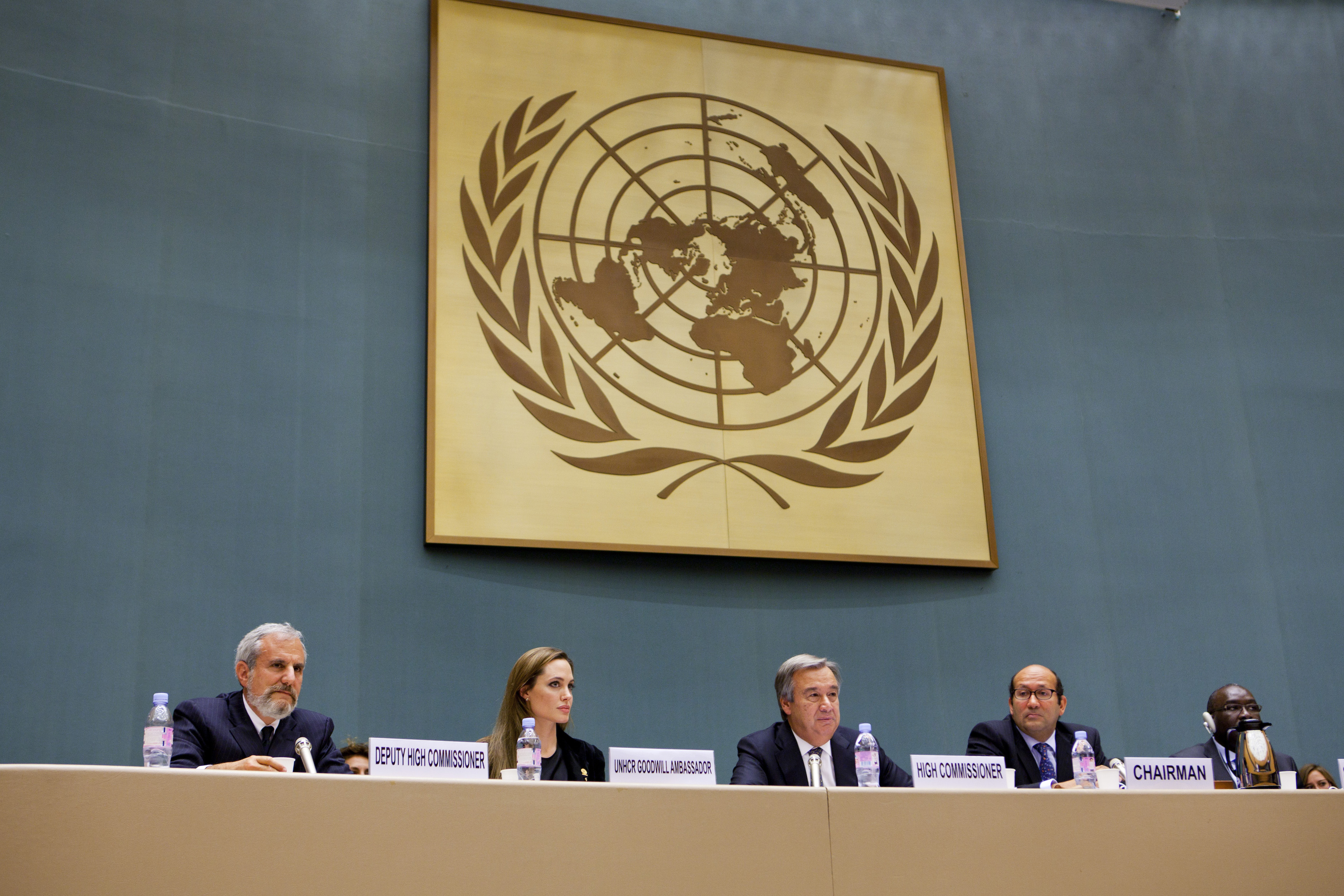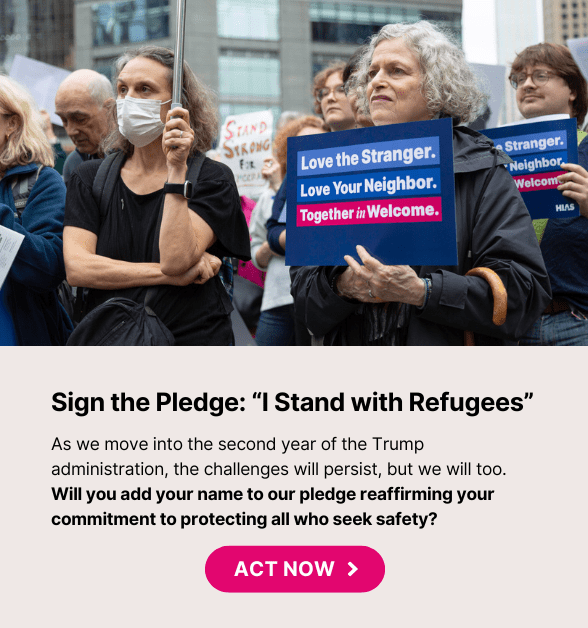Refugee Advocates Hail UN Rule Change
By Rachel Nusbaum, HIAS.org
Mar 28, 2016

In this handout image provided by UNHCR, UNHCR Goodwill Ambassador Angelina Jolie attends the annual meeting of UNHCR's governing Executive Committee on October 4, 2011 in Geneva, Switzerland. The celebrated Hollywood actress described the situation in Somalia and surrounding countries as 'the humanitarian crisis of a generation', and said further help was urgently needed.
( J Tanner/UNHCR via Getty Images)
Recent changes to the rules governing the UN’s refugee status determination process mean that more refugees will have access to justice and safety from persecution.
On February 24, 2016, the United Nations Refugee Agency, UNHCR, announced a long-awaited expansion of the right of refugees to access legal assistance.
“We’ve been advocating for this change for a long time,” said Rachel Levitan, associate vice president of global programs at HIAS. “Refugees’ access to legal representation is sometimes a matter of life or death. Legitimate refugees who are denied legal status can be returned to torture and detention in their home counties.”
According to UNHCR, refugee status determination is “the legal or administrative process by which governments or UNHCR determine whether a person seeking international protection is considered a refugee under international, regional or national law,” and it is “a vital part of being recognized as a refugee”.
Now, after years of advocacy by legal aid NGOs, UNHCR has issued a revised chapter for its procedural standards manual on the legal representation of asylum seekers during its own refugee status determination process. HIAS submitted detailed input as UNHCR was crafting the new text.
One critical change is that legal representatives now, for the first time, have the right to access the transcript or recording of UNHCR’s interviews with refugee applicants. The new chapter also provides that:
o Asylum seekers have the explicit right to legal representation.
o Processing timelines need to provide refugee applicants with enough time to obtain legal representation.
o Legal representatives must be bound by a code of professional responsibility, including the “Nairobi Code”, which was drafted and is used widely by legal aid NGOs.
o UNHCR must consider all material submitted by legal representatives in a timely manner and prior to a decision being taken in a refugee applicant’s case.
o Refugees may be accompanied by their legal representative during any interviews relevant to the determination of their status, including the cancellation, revocation or cessation of refugee status.
o Authorized legal representatives may request and receive access to medical, psychiatric and other expert reports.
Most countries around the world carry out their own asylum procedures, and these new UNHCR rules will not impact them. But in countries like Turkey, Jordan and Malaysia, which do not have the capacity or desire to assess individual asylum claims, UNHCR may conduct the refugee status determination instead. In 2014, UNHCR registered 245,700 asylum applications, an all-time high, and about 15% of the world’s applications. Only the Russian Federation, which logged 274,700 applications, registered more asylum claims that year.
“The impact of these new rules is potentially life altering for refugees,” said Levitan. “Proper legal representation is essential to ensuring that refugees are provided with international protection and a pathway to lives of safety and dignity.”
You can view the entire chapter online, here.



